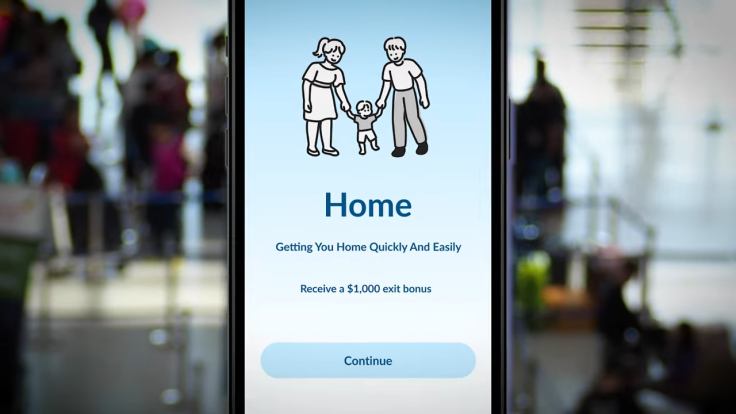
Migrants attempting to leave the U.S. voluntarily under the Trump administration's "Project Homecoming" report that the CBP Home app—the main tool for self-deportation—often leaves them stuck in legal limbo, unable to board flights or obtain proper documents.
Jairo Sequeira, a Nicaraguan immigrant, was denied boarding on a United Airlines flight in Texas in May despite carrying a printed confirmation from the CBP Home app, as Telemundo reported.
Sequeira, who had submitted a request to voluntarily depart, lacked a valid passport since his original documents had been taken when he surrendered to immigration authorities in El Paso in 2021. "I felt sad, honestly," Sequeira said. Without a national ID, he cannot obtain a replacement passport from the Nicaraguan government.
The Department of Homeland Security (DHS) confirmed to Telemundo that "tens of thousands" have registered through CBP Home, but declined to specify how many have successfully left. A senior administration official consulted by The Atlantic for a report in late June said over 7,000 people have signed up and more than 3,000 have confirmed departures.
Migrants who use the app are promised assistance with travel documents, subsidized airfare, and a $1,000 cash bonus upon arrival in their home country. However, migrants and advocates say the promised support is often unclear or delayed.
Titza Escobar, another Nicaraguan national, has faced similar issues. After escaping domestic violence, she attempted to turn herself in to immigration authorities but was repeatedly turned away.
She lacks a passport and speaks only Miskito, an Indigenous language. "I want to go to Nicaragua," Escobar said. Her consulate-issued travel document is still pending. Venezuelan migrants face even greater obstacles, as their government does not maintain a U.S. consular presence.
Immigration attorneys such a Christina Wiles also reported widespread skepticism about the app to Telemundo:
"I think that since people don't trust it, most of the people who are leaving are doing it quietly and without using the app"
The CBP Home app is part of a broader Trump administration strategy to encourage voluntary departures while intensifying immigration enforcement. A recent DHS-funded advertisement, aired during a baseball game, featured Homeland Security Secretary Kristi Noem warning migrants: "If you are here illegally, you're next." The ad contrasted deportation to Salvadoran prisons with more benign footage of self-deporting families boarding planes with toys in hand.
Though DHS frames CBP Home as a dignified alternative to arrest, immigrant advocates argue it relies on fear, not trust. "All they're doing with CBP Home is to push people further away from trusting the government," said Andrea Flores, a former DHS official, to The Atlantic.
© 2025 Latin Times. All rights reserved. Do not reproduce without permission.






